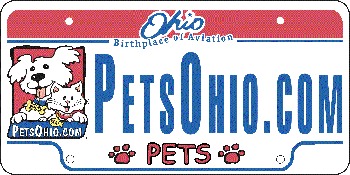
MYTH #1: Old dogs should not be spayed or neutered.
Many older dogs can be safely spayed or neutered with the proper precautions by a veterinarian skilled in geriatric care.
All dogs adopted through the Sanctuary are spayed or neutered before placement. If one of our dogs is not healthy enough to be safely spayed or neutered, that dog will stay with the Sanctuary for life.

Chloe Jane, successfully spayed as a special needs senior dog
The Sanctuary for Senior Dogs | home
Mission Statement | Please Foster/Adopt Us! | Adopted! | Forever Fosters--Sponsor a Senior Dog | Upcoming Events | The SCOOP | Graying Muzzles Calendar & Photo Contest | Why Should I Adopt a Senior Dog? | Seniors for Seniors & Therapy Dogs | The Georgia Memorial Therapy Dog Fund: The Bridges One Old Dog Can Build | Spay/Neuter Senior Dogs | In Memory 2009-2015 | Old Dog Stories | Giving up Your Senior Dog | Doggone Good Links | Support the Sanctuary | Contact the Sanctuary | Thank You!
Spay/Neuter Senior Dogs
This no-cost voucher program has ended. But we support spay/neuter to control over population and for health reasons.
Please consult your veterinarian to be sure your dog is healthy enough for surgery.

Do you believe your old dog cannot be safely spayed or neutered? Do you believe there are no benefits to spaying or neutering a senior dog? Are you afraid that your senior dog will be at greater risk for spay/neuter surgery? Are you afraid that spaying or neutering your senior dog will cause her to gain weight, become lethargic, or develop undesirable personality traits?
If you answered "yes" to any of the above questions, read on! Spay/Neuter Senior Dogs, a division of The Sanctuary for Senior Dogs, has important information that can improve the quality and perhaps extend the length of your senior dog's life.
Disclaimer: The Sanctuary does not offer medical advice, and any decision to spay/neuter your old dog should be made after careful consultation with your veterinarian.
What is spay surgery?
Spaying is the surgical removal of a female dog's ovaries, fallopian tubes, and uterus. It is also called an ovariohysterectomy.
What is neuter surgery?
Neutering is the surgical removal of the male dog's testicles.
Why should I spay or neuter my old dog?
Keeping unwanted litters from being born and adding to the overpopulation problem is the most obvious and often the most urgent reason to spay and neuter all dogs and cats. But many people are not aware of the potentially life-saving health benefits of spaying or neutering your senior dog.
According to the Humane Society of the United States, dogs (and, of course, cats, too) live longer and stay healthier when spayed and neutered. In female dogs, spaying eliminates the possibility of ovarian or uterine cancer as well as uterine infections, which are increasingly common in older dogs and can often be life-threatening. Spaying also reduces hormone fluctuations which can affect other conditions your dog may have, such as diabetes, epilepsy, or demodectic mange (see BarkRescue for more detail). Female dogs can become pregnant even at an advanced age, and giving birth can have devastating health consequences for the mother as well as the pups.
According to Pawprint and Purrs, neutering male dogs eliminates the possibility of testicular tumors and infections and reduces the risk of prostate disease. More than 60% of unneutered males over the age of 5 show evidence of prostrate enlargement.
In addition to the health benefits, there are behavioral benefits to spaying and neutering as well. Altered dogs are less likely to become aggressive or to bite than are dogs that have not been spayed or neutered. And neutering a male dog makes him less likely to run away, mark his territory with urine, or get into neighborhood fights. S.N.Y.P, an Oregon-based spay/neuter referral service, notes that 80% of all dogs hit by a car are males that have not been neutered and are looking for a mate.
If spayed or neutered, won't my senior dog gain weight and become lazy?
Your senior dog will not become fat or lazy because she has been spayed or he has been neutered. Like all dogs, senior dogs need regular exercise and appropriate meals. Senior dogs require fewer calories as they age and become less active than they were as young dogs. If you walk your senior dog every day and reserve some time for active play, she will not gain weight or lose her zest for life. If your senior dog has arthritis or other health conditions that make active play difficult, take several short walks a day to keep your old dog as active and healthy as possible.
In most cases, the benefits, both physical and behavioral, outweigh any risks involved with the surgery. Talk to your vet about the benefits of spaying or neutering your senior dog today.
Does spay/neuter surgery present more risks to older dogs?
All surgical procedures involve risk. In the hands of a competent veterinarian, however, most senior dogs (generally, dogs are considered senior at approximately seven years of age) can be safely spayed or neutered. Age alone, without an overall assessment of the senior dog's health, should not be used to rule out the surgery.
Before your senior dog is spayed or neutered, however, your vet should order a complete blood panel to make sure that your dog is healthy enough to safely undergo surgery. The blood test checks for anemia, kidney or liver disease, infection, and blood glucose levels, conditions that might not be evident through physical exam alone. If your vet thinks it is wise, she may also order x-rays or other tests.
Also discuss the details of the surgery with your veterinarian. Ask about the choice of reversible gas anesthesia for your older dog. Newer inhalants such as Isoflurane are generally safer for older dogs. Also ask about the availability of post-surgical care should your dog require it. Don't be afraid to ask questions; be an informed care giver.
After the surgery, your senior dog will require a watchful eye to make sure that he heals quickly and properly. Charla Dawson, a veterinary nurse, recommends that your senior dog stay calm for about a week after a spay or neuter surgery. Check the surgical site daily, and report any redness, discharge, or swelling to your vet. If the incision is open, see your vet immediately. Dawson also recommends keeping your senior dog on a leash for trips outdoors to eliminate. Dogs should not be permitted to run freely for at least a week following surgery.
What do I do now that I want to spay/neuter my senior dog?
Discuss the spay/neuter surgery with your family veterinarian. If he says your dog is simply too old, call other veterinary clinics in your area. Always ask for references. It is best to find a reputable veterinarian that is highly recommended to care for your geriatric dog.
If you are near Cleveland, Ohio, contact the Sanctuary for referrals to veterinary clinics with experience in geriatric spay/neuter.
Support Spay/Neuter programs in Ohio; get your PetsOhio license plate today!
Click the PetsOhio plate for more information.
Copyright 2001-2024
No part of this web site, including photographs, may be reproduced without written permission
